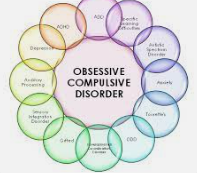OCD or Obsessive Compulsive Disorder is a mental health condition that can affect people in a number of different ways. For some people who live with the condition, the symptoms can appear as compulsions such as a need to wash items over and over again or a need to carry out a particular ritual over and over again. For others, it can appear as intrusive thoughts that then consume the person’s thoughts. Either way, it can be a debilitating condition that can have a large impact on people.

As well as affecting the individual, OCD can put a lot of strain on family and friends. It is important that anyone living with someone with OCD feels that they too are getting support. This could mean finding support groups or it could be attending Mental Health Training Courses like the ones that are available at https://www.tidaltraining.co.uk/mental-health-courses/.

One of the best ways to help support someone with OCD is to give them the time and space to carry out any rituals that they feel are needed and to help them with these in a way that can support them to then carry on with the rest of their day. Allowing them to talk about how they are feeling and taking time to try and understand the condition can help to relieve some of the stress and strain that can appear in the relationship.

